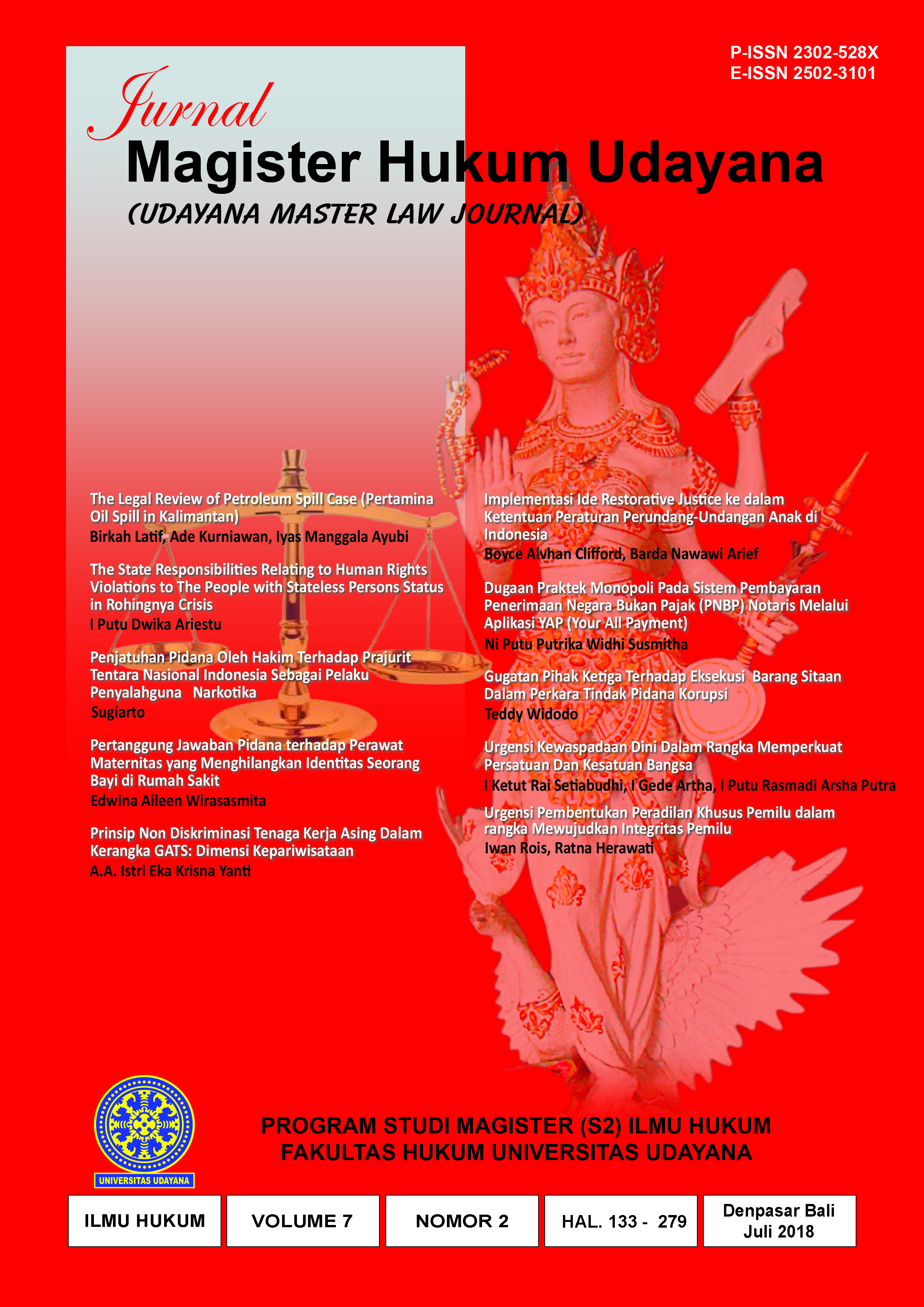The State Responsibilities Relating to Human Rights Violations to The People with Stateless Persons Status in Rohingnya Crisis
Abstract
Human Rights and the State could not be separated from one another. Both are interconnected in terms of how to ensure internal stability in a country. With the existence of human rights, it is hoped that state is not arbitrary to treat its people and is obliged to protect everyone in its territory including in this case Stateless persons mentioned in Article 7 paragraph 1 of the Convention relating Status of Stateless Persons in 1954. This study aims to analyze the obligations the State must take in relation to the protection of persons with stateless persons status, and to recognize the legal consequences and responsibilities of States in the event of omitting acts of human rights violations against people with stateless persons status. This paper using normative research methods with statute approach and conceptual approach. The study shows that in relation to the obligation of the state that each State shall be obliged to provide protection to persons with stateless persons status as stipulated in the 1954 Convention and the provisions of the International Human Rights Law, the obligations of state protection include the protection of the right to life, the right to employment and even the right to obtain citizenship status. The international legal consequences accepted by the state are listed in Article 39, Article 41, and 42 of the UN Charter. Then for state responsibility are listed under Article 35, Article 36, and Article 37 of UNGA 56/83 of 2001.
Hak Asasi Manusia dan Negara tidak bisa dipisahkan satu sama lain. Keduanya saling terkait dalam hal bagaimana menjamin stabilitas internal di suatu negara. Dengan adanya hak asasi manusia, diharapkan negara tidak sewenang-wenang memperlakukan rakyatnya dan berkewajiban melindungi semua orang di wilayahnya termasuk dalam hal ini para warga negara yang disebutkan dalam Pasal 7 ayat 1 Konvensi terkait Status Orang Tanpa Negara di tahun 1954. Tulisan ini bertujuan untuk menganalisis kewajiban yang harus diambil Negara sehubungan dengan perlindungan orang-orang dengan status orang tanpa kewarganegaraan, dan untuk mengakui konsekuensi hukum serta tanggung jawab negara dalam hal melakukan tindakan pelanggaran hak asasi manusia terhadap orang-orang dengan status tanpa kewarganegaraan. Tulisan ini menggunakan metode penelitian normatif dengan pendekatan perundang-undangan dan pendekatan konseptual. Hasil studi menunjukkan bahwa sehubungan dengan kewajiban negara bahwa setiap Negara wajib memberikan perlindungan kepada orang-orang dengan status orang tanpa kewarganegaraan sebagaimana diatur dalam Konvensi 1954 dan ketentuan-ketentuan Hukum Hak Asasi Manusia Internasional, kewajiban perlindungan negara termasuk perlindungan hak untuk hidup, hak untuk bekerja dan bahkan hak untuk mendapatkan status kewarganegaraan. Konsekuensi hukum internasional yang diterima oleh negara tercantum dalam Pasal 39, Pasal 41, dan 42 Piagam PBB. Kemudian untuk tanggung jawab negara tercantum di bawah Pasal 35, Pasal 36, dan Pasal 37 UNGA 56/83 tahun 2001.
Downloads
Jurnal Magister Hukum Udayana (Udayana Master Law of Journal) by Faculty of Law Udayana University is licensed under a Creative Commons Attribution-NonCommercial 4.0 International License.



















